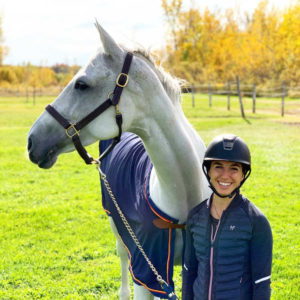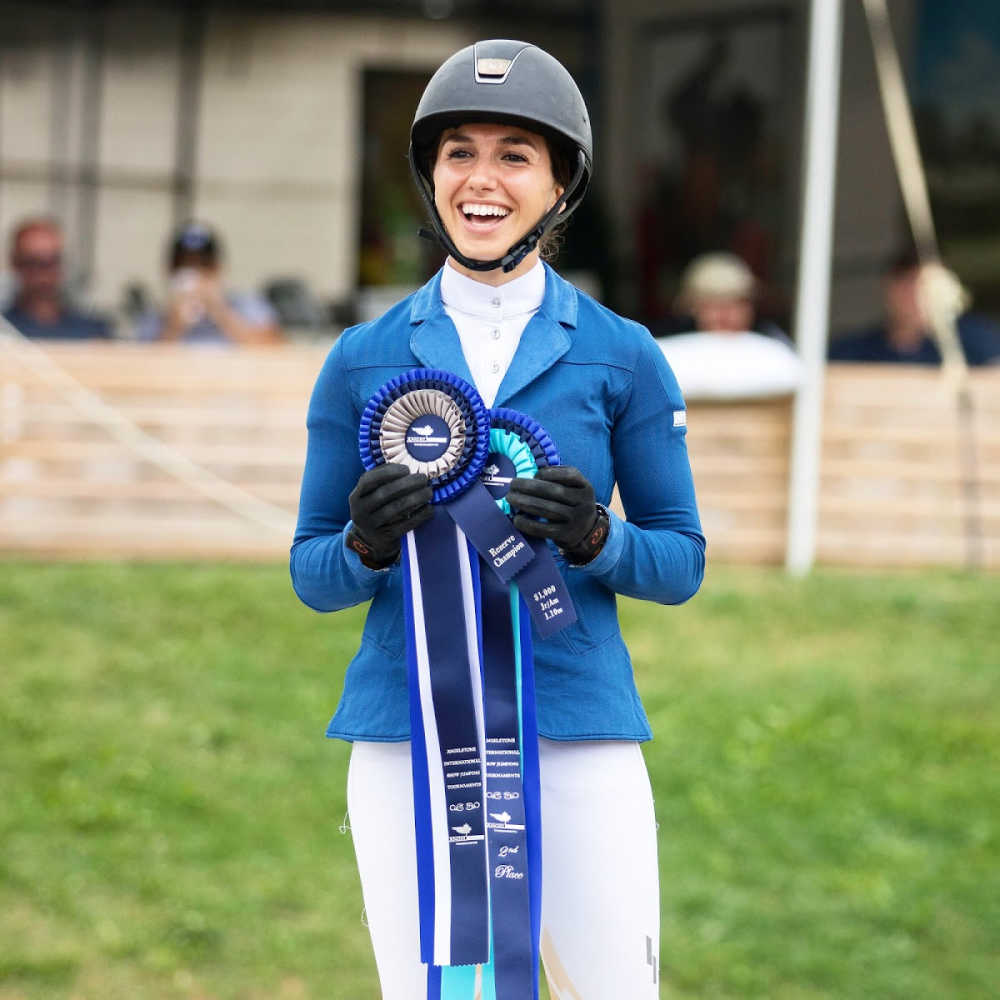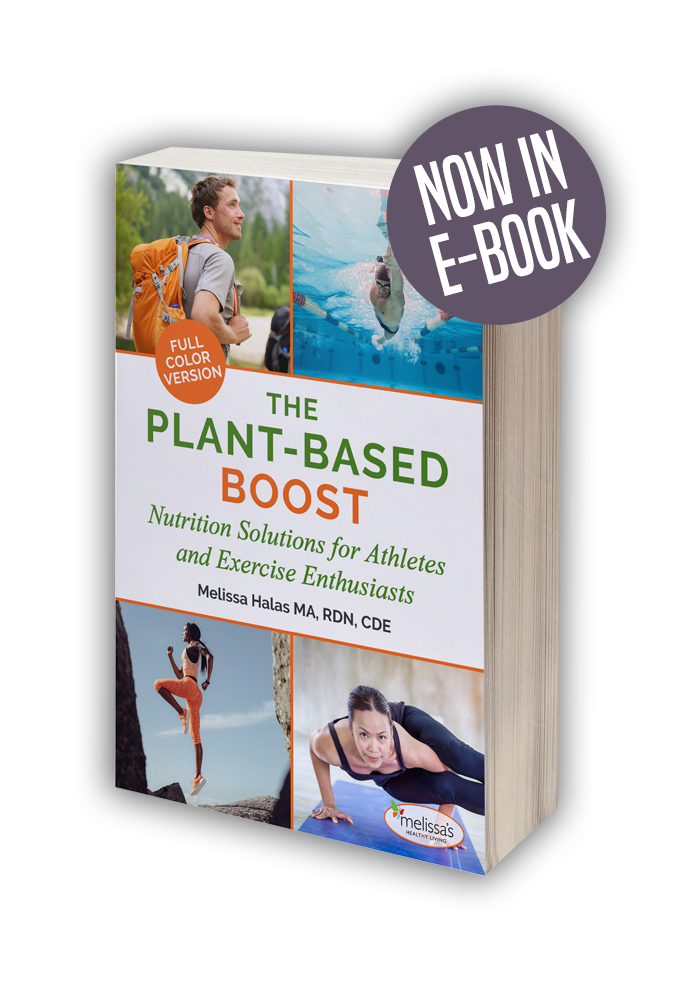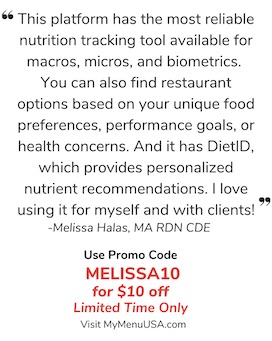
After years of hard work, it’s time for me to share my insights into the importance of eating well and cross-training to be a top equestrian athlete.
That’s me. I was the crazy horse kid who galloped down the hallways and jumped over obstacles in the schoolyard. But, I now compete as a showjumper at top-level competitions across the United States and Canada. While I would love to attribute my success to my unforeseen natural talent, that isn’t exactly how this story goes.
Welcome to the World of Show Jumping
From the outside, it’s a glamorous world for celebrity children and the ultra-wealthy. While that’s partially true, it also includes a large proportion of penny-pinching, over-worked, and under-recognized riders looking to fulfill their dream. Like gypsies, riders spend most of the year gallivanting to different cities, trying to obtain the glory of a blue ribbon and negligible prize money. Months are spent in hotels, trailers, or campgrounds, without any true sense of home. And, while our horses receive top-level care, riders tend to survive on microwavable meals, restaurant take-out, and coffee. Okay, a lot of coffee.
What Does It Take To Be A Rider?
To correct a common misconception: the horse doesn’t do all the work. As a team, a rider and their horse complete a course, under a specific time requirement. The fastest team to finish the obstacles without making any rails fall is the winner. In order to be a successful rider, one needs to be strategic, strong, persistent, and have cat-like reflexes. With competitions won by fractions of a second, it’s important for riders to utilize performance benefits such as proper nutrition and cross-training.
Nutrition’s Role for Equestrian Athletes’ Performance
Show jumping goes beyond the time spent competing. The day starts at dawn and ends after sundown. There isn’t really an off-season, nor are there days off. Competitions circuits are weeks, if not months long, with Mondays acting as a rest day. But, more often than not, that day is spent doing barn chores, and managing the care of their top-level teammates…your horse.
Common issues among riders include dehydration, chronic caloric deficit, electrolyte imbalance, inadequate protein consumption, and vitamin insufficiency. So, pretty much everything. But, as a rider, master’s graduate, and future dietician, I use proper sports nutrition as a way to enhance performance and prevent injuries. If riders get injured, their horses still require full-time care. In other words, don’t get hurt. And, no matter what the sport, a well-fueled athlete will strive over a poorly nourished, more natural athlete. Equestrian athletes are no different.
Protein for Equestrians
Protein supplies the building blocks needed for muscle recovery. Riders use the same muscles day after day, causing both fatigue and decreased range of motion. It’s definitely why we all have the flexibility and backaches of an elderly person. Nevertheless, we wake up every morning and give it our all on a show day. Therefore, due to the constant physical demand from all aspects of equestrian life, getting enough protein is critical. Give the body the tools it needs to repair keeping riders in the saddle and ready to perform.
Antioxidants for Equestrians
Riders are sore A-L-L the time. But, consuming antioxidants can help make working muscles “sore no more.” While it may not be a magical cure, it can make a noticeable difference. (2) Personally, I swear by tart cherry juice, and take it to every competition. As previously mentioned, having sore muscles can decrease your range of motion, which can increase injury susceptibility and rate of perceived exertion. Don’t make riding more difficult than it already is. Without muscle soreness, riders are better able to maintain their position in the saddle, and improve performance.
Antioxidants also play a major role in immunity! (3,4) Being in a constant state of fatigue really does a number on your immune system, and can make riders more susceptible to illness. Have you ever tried to learn a course with a pounding headache and a case of the sniffles? Forget trying to beat out your strongest competitor if your eyes can’t stop watering. Instead, keep your focus on giving your best ride rather than your runny nose by getting plenty of antioxidants. I love to start off a show morning with an antioxidant-rich acai bowl! When possible, opt for food first!

Electrolytes for Equestrians
Whoever decided classic competition attire for riders clearly did not like us as people. Under the scorching sun, riders compete in long sleeves, blazers, gloves, helmets, long pants, and leather boots. Not to mention that we spend the day sitting on a horse who also emits tons of heat. So long story short, we sweat…a lot! And, with the hectic nature of horse shows, riders often forget to rehydrate both fluids and electrolytes. In fact, cases of heat stroke are a common occurrence at equestrian events. How on earth can riders perform at their best when dehydration can cause an increase in heart rate, muscle cramping, overheating, and more? Don’t risk heatstroke and a possible accident…like passing out on your horse (I learned the hard way). Beat the heat and improve your riding performance by replenishing fluids and electrolytes, such as salt and potassium. Work with a nutrition specialist to help calculate your sweat rate, or monitor your weight fluctuations to evaluate fluid loss. Don’t forget to invest in a good low-sugar electrolyte when training – I like Gatorade powder electrolytes.
Calories for Equestrians
There are multiple reasons why riders tend to under consume calories. It’s not uncommon for riders to skip breakfast and compete their morning division relying solely on coffee. But, riding on depleted glycogen stores can negatively impact your reflexes, strength, focus, and more. Since carbs fuel the brain, skipping breakfast can cause you to go from a blue ribbon to no ribbon at all. Riders tend to also under eat throughout the day do to lack of time, healthy options, and unwanted feelings of heaviness. Regardless of the reason, chronic under fuelling will not only bring down your performance but can also increase the likelihood of getting injured.
Vitamins for Equestrians
Riders are in no shortage of vitamin D. Between training and competing, equestrian athletes spend their days outside. Rain or shine. That being said, riders often lack essential vitamins for muscle recovery, such as calcium, magnesium, potassium, omega-3, and more. While this is in part due to the issue of under fueling, it also has to do with the increased vitamin needs for riders. The combination of fatigue, overtraining, and poor muscle recovery makes riders susceptible to injuries. And, nobody has time for that!
Is Leaner Always Better?
As the only gender-neutral Olympic sport, the importance of weight for equestrian athletes has been constantly debated. But, unlike horseracing, show jumping is not considered a weight-restricted sport. That being said, certain equestrian events are judged by overall appearance, which puts significant pressure on its athletes to have an “aesthetically lean frame”. As a result, eating disorders are extremely prevalent within the equestrian community. A previous study has shown that 42% of NCAA division I equestrian athletes suffer from an eating disorder (1). Meanwhile, the weight of the rider doesn’t translate into better performance. Leaner doesn’t necessarily mean stronger, faster, or more better results in the show ring. Stick to a body weight that maximizes balance, coordination, strength, and injury prevention. Whatever body weight that may be! Point blank: leaner is not always better.
The Importance of Cross Training for Equestrians
Cross-training is when athletes use multiple modes of training, with the goal of improving their sport-specific fitness. In other words, if you want to become a better rider, you have to do a little bit of everything. Resistance training. Cardiovascular training. Flexibility training. So, carve out some time to put away the tall boots and grab your sneakers. With cross-training, equestrian athletes can progress their riding without excessively overloading commonly used muscles, such as their hips, back, and legs. It can also improve your riding position by improving your muscular endurance and overall stamina. Finally, it allows riders to not be limited to only improving their riding by time spent in the saddle. Outperform your competitors through cross-training! And if you’re really busy use HIIT workouts to save time.
Years ago, jumping used to cripple my back, and cramp my calves. In fact, it affected my ability to hold myself over bigger jumps, which stunted my riding progress. But, I dabbled with training in the gym and started doing exercises such as deadlifts, squats, rows, core work, and more for an effective weight lifting routine. All of a sudden, it was as if the riding gods sprinkled me with fairy dust. Gone were the muscle aches, and on came a newfound equitation position that I have always longed for. While I would love to attribute my improved riding skills to natural talent, it was the incorporation of cross-training that made all the difference.
Final Thoughts
In the end, I am a horse girl who loves to compete. I did not improve my riding my being lucky enough to have multiple entries, nor did I rely on any form of natural abilities. I am a competitive person, and used what I know about sports nutrition and exercise physiology, and applied it to my riding. I quickly learned that no matter how talented, an athlete cannot succeed without proper fuelling and training. Energy levels will plummet. Reflexes will slow down. Strength in the saddle will decline. Injuries will happen. While having natural talent is an advantage to any sport, it isn’t the sole decider of winning a class. Climb your way up the ribbons with improving your sports nutrition and incorporating out of the saddle training. Make this your best show season yet!

References
- Torres-McGehee, T. Prevalence of Eating Disorder Risk and Body Image Distortion Among National Collegiate Athletic Association Division I Varsity Equestrian Athletes. Retrieved from: https://www.ncbi.nlm.nih.gov/pmc/articles/PMC3419156/
- Kuehl, K. Efficacy of Tart Cherry Juice in Reducing Muscle Pain During Running: A Randomized Control Trial. Retrieved from: https://www.ncbi.nlm.nih.gov/pmc/articles/PMC2874510/
- Carr, A. Vitamin C and Immune Function. Retrieved from: https://www.mdpi.com/2072-6643/9/11/1211/htm
- Zimmer, J. Polysaccharides Isolated from Acai Fruit Induce Innate Immune Responses. Retrieved from: https://www.ncbi.nlm.nih.gov/pmc/articles/PMC3046208/



